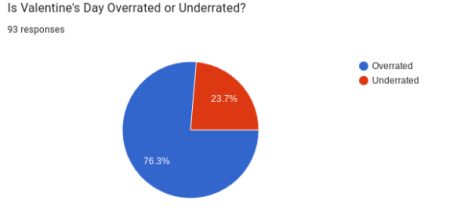Student Press Freedom Day: The importance of scholastic journalism
February 12, 2020
Student journalism is one of the main ways through which students can receive objective news stories, in-depth opinions and detailed coverage of local, state and national events. Scholastic journalism is also an opportunity for journalists in high school or college to explore the career field and find their passions as well as a voice.
On Jan. 29, student newspapers celebrated Student Press Freedom Day, which is an acknowledgement of the contribution student journalists bring to their schools and society. The Mustang editorial staff wanted to take advantage of this day to reflect on our own journalism at MHS as well as on the role of student journalism in society and the challenges it faces.
The editorial staff believes First Amendment rights, especially freedom of the press, are vital to the school environment because it allows for us, as journalists, to communicate to the students about the world through a different lens than larger mainstream news sources might.
The 1988 Hazelwood School District v. Kuhlmeier Supreme Court case allowed school administrations to have a degree of censorship over their students as Justice Byron White wrote in his opinion, “A school need not tolerate student speech that is inconsistent with its basic educational mission, even though the government could not censor similar speech outside the school.”
This case allowed for schools to censor articles that might damage school image and articles that seemed to be inappropriate for the student body.
In response to the Hazelwood case and its implications, many states have passed legislation expanding the freedom of scholastic press, and our staff whole-heartedly supports these actions.
In Illinois, House Bill 5902, “The Speech Rights of Student Journalists Act” increases the protection given to high school journalists against school censorship. This law goes beyond the protection given by federal law and allows student journalists to comment on political and social situations, including policies in their high schools, without the fear of school censorship.
However, and our editorial staff agrees, student journalists are not protected from censorship if the article is libelous, slanderous, obscene, an invasion of privacy, a violation of state or federal law or an encouragement of students to violate a law or school policy.
Illinois is one of many states to pass these new laws, and we are hopeful that it will become a nation-wide occurrence.
We also want to highlight how impactful articles by student journalists can be.
The MHS newspaper staff has covered a variety of events and topics. We covered the school walkout in spring of 2018, helping to raise awareness about a key social issue, we wrote an editorial last year about President Trump and his actions toward the press, and we highlight as many students and events at MHS as we can, shown by our variety of coverage from the SPED game to the Veterans Day Assembly.
In a view on press in general, the role journalism plays spans from political watchdog to providing entertainment. The Mustang staff has sought to fulfill many of these roles. We play an economic role by reporting on consumer goods, such as new technology, and by connecting local consumers and local businesses together in an effort to boost community relationships. Our newspaper and many other student-run media provide a “marketplace of ideas” where our staff and our individual writers can share their opinions and views, and we also have an open environment for people to write their feedback to our editors through letters-to-the-editor.
The Student Press Law Center, the organization that encouraged student newspapers to promote Student Press Freedom Day, highlights the commitment students make to their work despite censorship and challenges they might face. At MHS, our staff is lucky to have an administration that generally has not censored articles we want to publish, which shows a commitment to our press freedoms.
But despite the fact that we don’t face censorship, there is still the problem other school newspapers face involving the current environment surrounding the press. The “fake news” label on media outlets has not disappeared, and as news sources become increasingly polarized, Americans have started to lose respect for journalists who report information for the opposing side, however factual it may be.
In reference to an article published in our December issue about the backlash student journalists faced at Northwestern University, the environment surrounding what journalists should report and how they should report it was controversial. Journalists have an ethical duty to report newsworthy information, and these same standards apply or should apply to student journalists as well, but when the Daily Northwestern reporters covered a newsworthy protest, they received backlash. Even more so, when they apologized for their coverage, they were criticized by professional news sources for their apology.
So, what we are seeing in the U.S. is that there is an increasing push for student journalists to take on a greater role, but when those students try to report high-level political information, it receives backlash and national professional scrutiny.
In summary, the editorial staff believes freedom of the press, especially freedom of the scholastic press, is an essential part of our nation as, in the words of Thomas Jefferson, “Our liberty depends on the freedom of the press, and that cannot be limited without being lost.”
It is this same sentiment of the necessity of the freedom of the press that demands every American citizen to respect ethical journalism, to encourage students to take on a greater role and to have the freedom to take on this greater role in order to be both a political watchdog and a commentator on social events.
